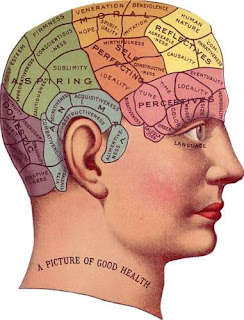Sometimes I write things that are so obvious that they probably should go without saying. And yet, they often need to be said anyway. This will be one of those things.
Atheists are, above all else, human beings. We have the same faults, limitations, shortcomings, and weaknesses of any other humans. And again, this should not come as a surprise to anyone since we are ourselves human. So what? This is important, at least in part because we would do well to recognize that atheists are perfectly capable of believing some pretty ridiculous things. And unless an atheist changes his or her mind on the question of gods, no amount of absurd beliefs make him or her any less of an atheist. Less of a skeptic, less of a humanist, or generally less reasonable, perhaps, but not less of an atheist.
I know many of us expect more from our fellow atheists and end up feeling surprised or disappointed when we turn out to be wrong. We really should know better by now, shouldn't we? Haven't we all had enough interactions with other atheists that should make it nearly impossible to expect something so different from what we find?
In the time I've been writing Atheist Revolution, I've encountered atheists who take the Ancient Aliens show on the History Channel seriously, atheists who believe in ghosts, atheists who are convinced that modern climate science is "a hoax," atheists who take unproven and potentially harmful dietary supplements every day, atheists who believe that people can develop post-traumatic stress disorder from being exposed to insults from Internet trolls, and atheists who adamantly oppose the free expression of ideas if the ideas in question are critical of Islam (or third-wave feminism). I've interacted with atheists who proudly defend science right up until it casts doubt on their cherished beliefs, atheists who have managed to convince themselves that Bernie Sanders will win the Democratic nomination, and atheists who believe that they are making the world a better place by calling others names on Twitter.
On social media, I regularly run across atheists complaining about the poor treatment religious believers dispense. They are right to do so. There are countless examples of religious believers treating people quite poorly. And yet, I cannot help but notice that many of the atheists who complain most vocally are themselves treating others poorly. It is difficult to see this as anything other than blatant hypocrisy.
Perhaps we should be discouraged by all of this. I suppose that would be an easy path to take, but I am not sure it is the correct one. Remember, we are human. If we can manage to disabuse ourselves of the notion that we are necessarily more rational than religious believers in any respect besides our answer to the question of gods, we would be one step closer to living in accordance with reality, something that nearly all of us claim we desire to do.
As satisfying as any particular narrative might be, we must abandon it when it is shown to conflict with reality. And in this case, that means letting go of our pretensions and owning our humanity. Yes, it is a deeply flawed and frequently irrational humanity, but it is who we are. It is who we all are.
